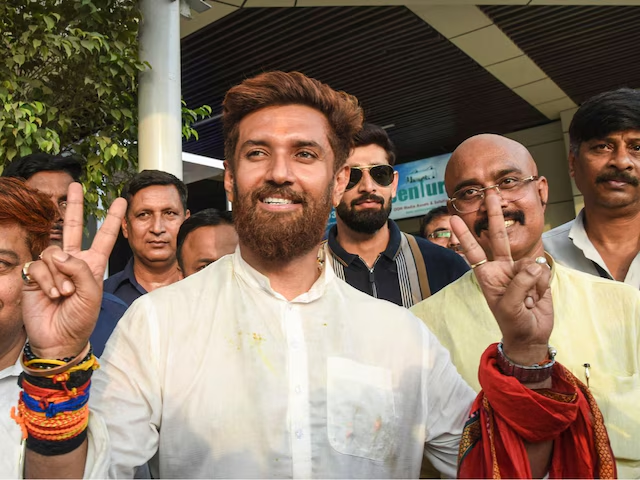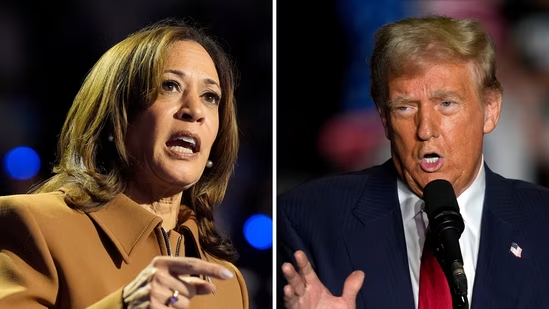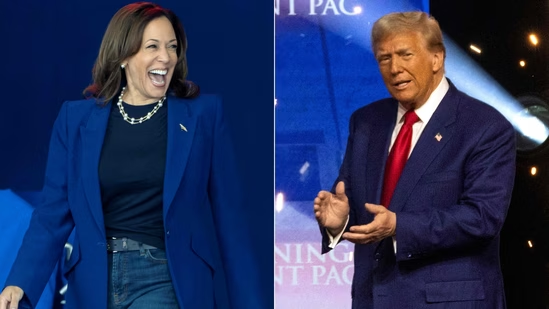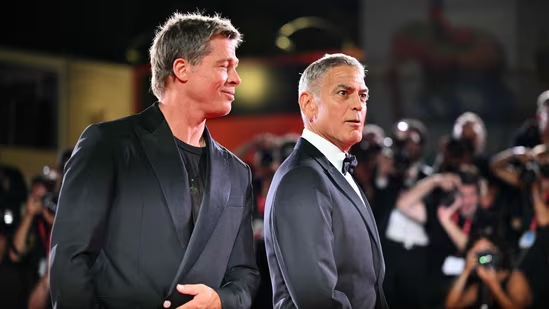Union Minister and Lok Janshakti Party (Ram Vilas) president Chirag Paswan reminisced about frequent discussions he and his father had with Sonia Gandhi regarding their party’s future within the UPA alliance.

Union Minister and Lok Janshakti Party (Ram Vilas) president Chirag Paswan stated that Rahul Gandhi’s persistent refusal to meet with his father, despite several months of attempts, was a significant factor in Ram Vilas Paswan’s decision to exit the Congress-led UPA and align with the BJP ahead of the 2014 elections.
When asked about his perspective on Rahul Gandhi, Chirag Paswan shared during an interaction with PTI editors at the agency’s headquarters that the Congress leader has recently started to take his responsibilities “a bit more seriously.” However, he criticized Rahul Gandhi’s recent parliamentary speech as inappropriate for someone in the role of the leader of the opposition.
Chirag Paswan recounted that he and his father frequently met with Sonia Gandhi to discuss their party’s future in the UPA alliance. Sonia Gandhi recommended that Ram Vilas Paswan meet her son, Rahul Gandhi. Despite seeking an appointment and waiting for over three months, Rahul Gandhi did not agree to meet, according to Chirag Paswan. During this time, Chirag was also eager to leave the UPA and join the NDA.
Ram Vilas Paswan, however, remained inclined to stay within the UPA and wanted to discuss this with Rahul Gandhi, Chirag Paswan explained. “It worked out well for me, though. If the meeting had occurred, convincing my father to join the BJP-led NDA would have been challenging,” he said, highlighting his preference for an alliance with the BJP due to his admiration and respect for Prime Minister Narendra Modi.
“Until 2013, we were part of the UPA, and I vividly remember my father’s reluctance to leave the alliance. He was determined to remain, and persuading him to switch was extremely difficult for me.” The senior Paswan’s decision to break away from the UPA and join forces with the BJP, a notable grassroots Dalit leader who passed away in 2020, became a significant headline during the 2014 election season. This move helped the BJP gain momentum and expand its alliance, riding the Modi wave to secure its first majority in the Lok Sabha.
Chirag Paswan revealed that one of the factors behind his party’s departure from the UPA in 2014 was the Gandhi family’s reluctance to facilitate a meeting with Rahul Gandhi. “One of the reasons my father decided to leave the UPA was his inability to meet Rahul ji,” Chirag Paswan stated. “My father made numerous attempts over three to four months to arrange a meeting with Rahul ji, but none were successful. This lack of engagement deeply frustrated him. Despite being a senior leader and a crucial ally in the UPA, he was unable to secure even a single meeting with Rahul Gandhi.”
Chirag noted that he has observed a shift in Rahul Gandhi’s approach to politics since then. While Rahul Gandhi initially showed considerable reluctance, he has recently begun to assume greater responsibility. However, Chirag Paswan criticized the Leader of the Opposition’s recent Lok Sabha speech for its “personal attacks” on Prime Minister Modi and the Speaker, claiming it also displayed disrespect towards various religions.
When questioned about his admiration for Prime Minister Narendra Modi, Chirag Paswan revealed that his respect for Modi began even before his party was part of the NDA. He noted that his personal connection with the Prime Minister was a significant factor influencing his decision to align with the NDA.
The Food Processing Industries Minister shared that he has learned from his father the importance of maintaining strong personal relationships with leaders across various political parties. He mentioned that he regularly sought Bihar Chief Minister Nitish Kumar’s blessings by touching his feet, even during periods of political criticism.
Chirag Paswan described RJD leader Lalu Prasad Yadav as a fatherly figure and his son Tejashvi Yadav as a younger brother, emphasizing that these relationships were personal rather than political.




